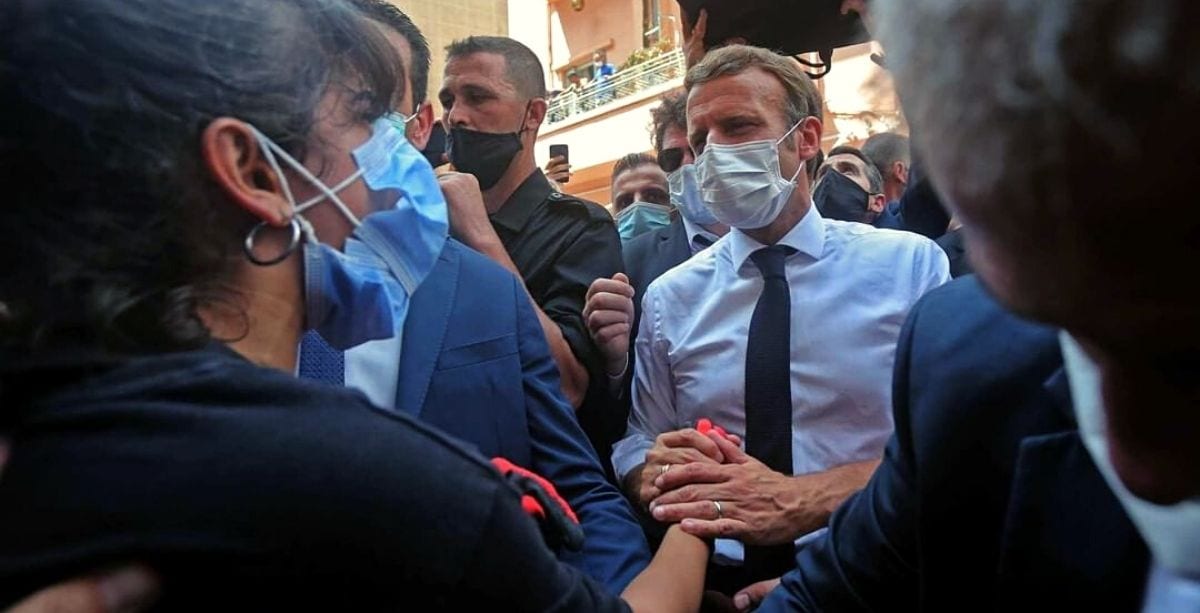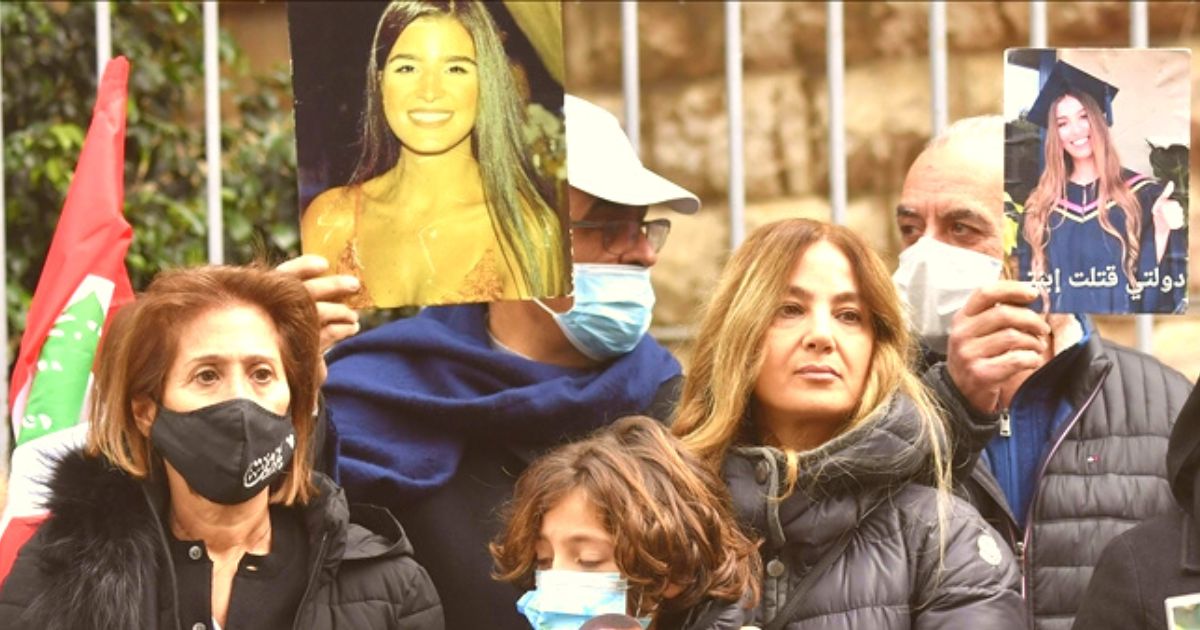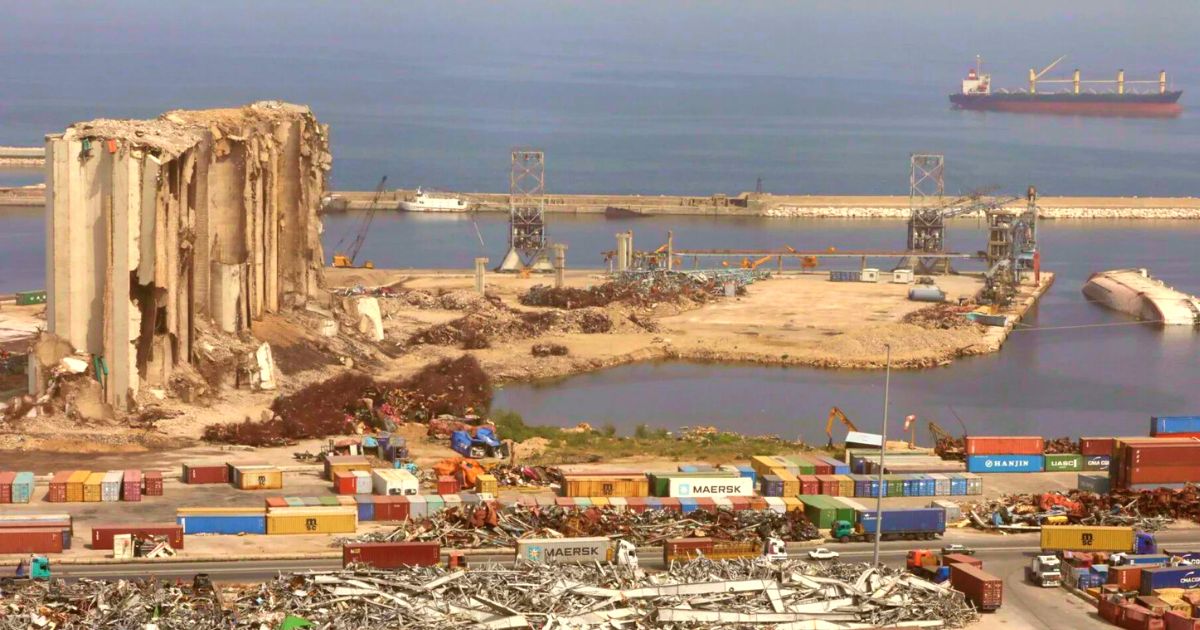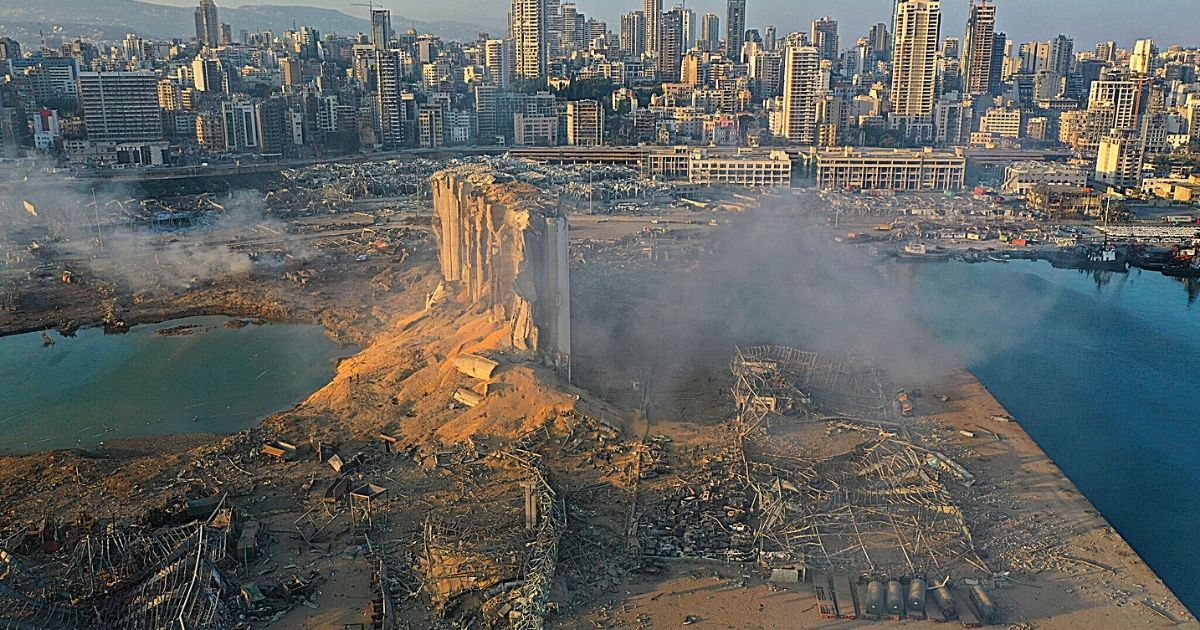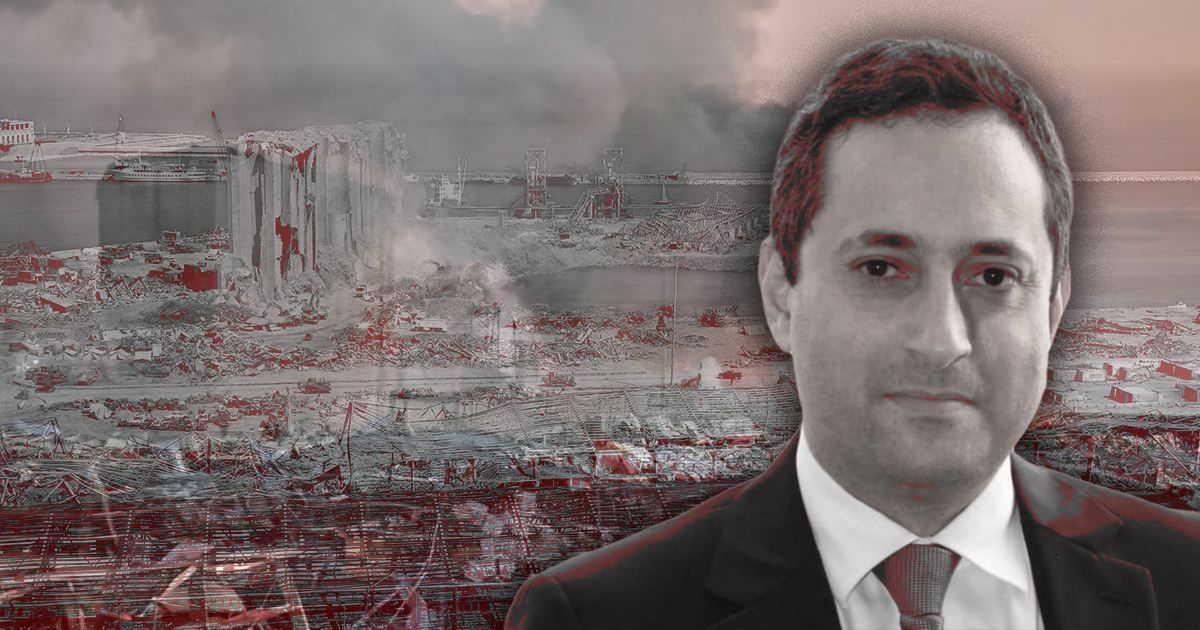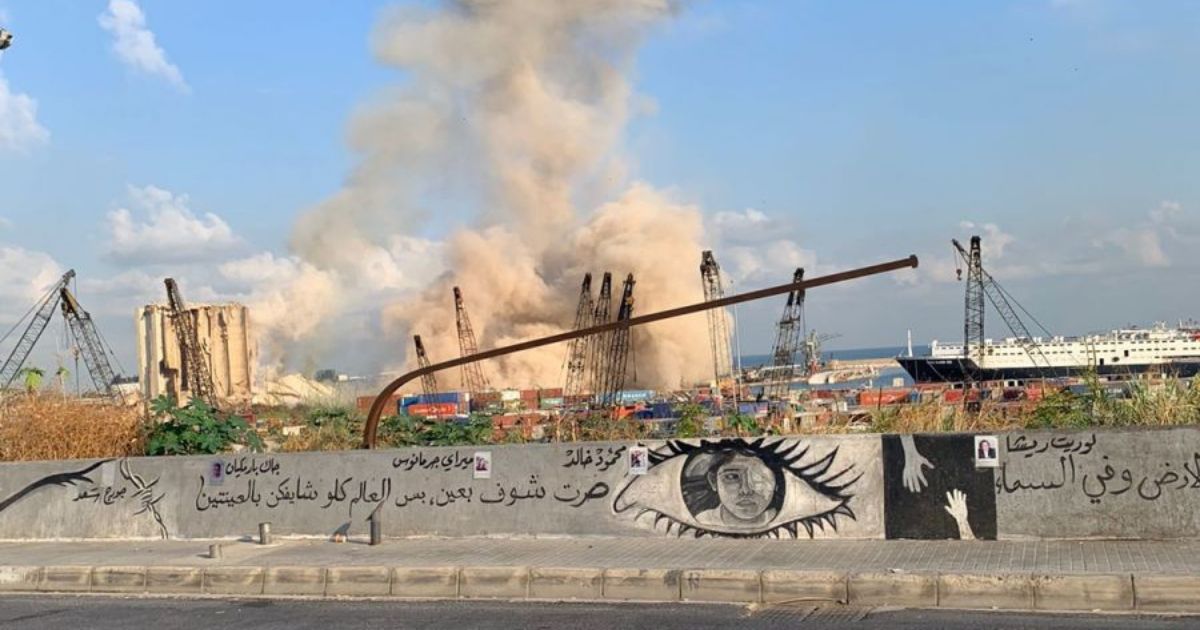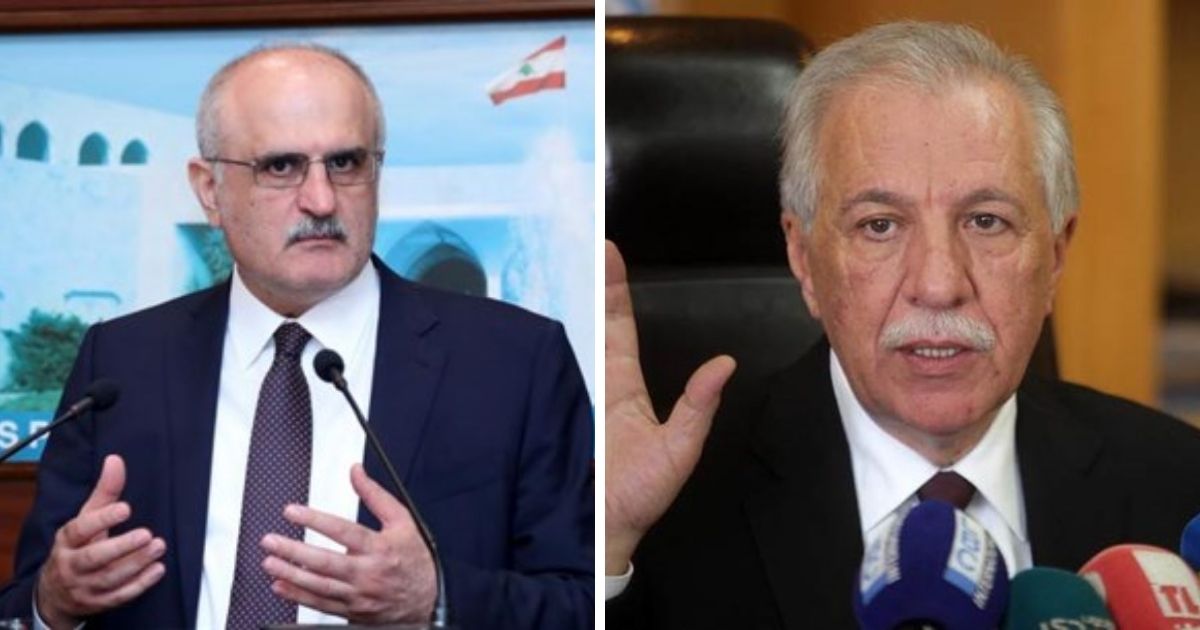The arrival of French President Emmanuel Macron to Lebanon seemed to invoke a special emotion in the Lebanese, who have been in need of consolation after they endured the horrors of the Beirut Port explosion.
Expressing distrust toward their own politicians, whom, to begin with, they mostly blamed for the disaster, many people resorted to the French President to let out their frustration and seek a listener for their desperate cries.
A short time after the August 4 explosion, Macron scheduled a visit to Lebanon with the aim of lending support to the Lebanese people.
Sure enough, on August 6, he landed in Beirut, inspected the scene of the explosion, before rushing not to the palaces, but to the torn neighborhoods of Gemmayze and Mar Mikhail.
There, he was greeted by a crowd that looked to him to provide the answers to their burning questions and make the promises that the Lebanese leaders can probably make but, most likely, not keep.
“Don’t give the donation to our corrupt government!” a worried voice called out as Macron made his way through the large crowd.
Acknowledging the gravity of this concern, he turned to the woman, saying: “Don’t worry, we’ll give them to the people.”
It was perhaps this warm gesture and the similar others that Macron was recognized for during his time on the street that gave birth to the #Macron appreciation trend.
Noticing the sincere sympathy that he showed when he talked to the people on the ground, face-to-face, many Lebanese pointed out how their own leaders lacked the initiative to be there for them in such dark times.
“This is a true leader,” and similar remarks were written all over the widely-shared pictures and videos of Macron hugging people, engaging in conversations with them, and showcasing a compassionate response to their suffering.
“Lebanon is not alone,” Emmanuel Macron later said in a brief tweet that garnered a lot of attention and appreciation from Lebanese social media dwellers.
Interestingly, some even started referring to him with the Lebanese President’s popular nickname, “Bay el Kel,” roughly meaning “our father,” as another show of admiration for his personal interactions with them.
